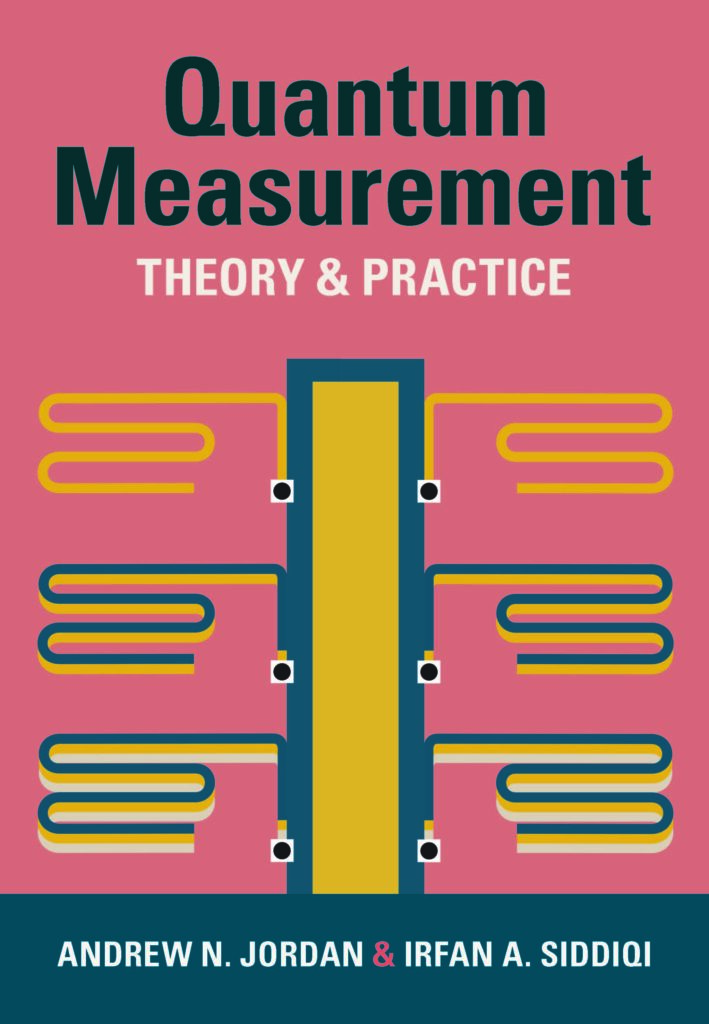
What is the topic of the book?
Measurement is one of the most fascinating and misunderstood aspects of quantum physics. It plays no role in classical physics, other than reducing ignorance about the underlying reality. In quantum physics measurement plays a fundamental role, and the choice of what kind of measurement you choose to do is necessary in order to make scientifically testable predictions within the quantum formalism. The collapse of the wavefunction has been an intriguing and dramatic part of quantum theory for almost a century. We delve into this phenomenon and gradually unpack it as the book progresses, as a testable scientific phenomenon.
Why did we write this book?
The simple fact of the matter is that our colleagues kept asking us to do so. This is because there has been a tremendous amount of progress in the field (both theory and experiment) which only a small fraction of scientists seem to know about. Together with our students and colleagues, we have been privileged to be part of this process of scientific discovery. There is a real gap in the physics book literature that covers these recent advances. This situation convinced us that a new book on this topic was both timely and needed. It is our hope that by writing a comprehensive and readable text aimed at scientists and students that know some quantum physics will help educate the current generation and the ones that follow about this fascinating and deep topic in quantum physics. Our fondest hope is that this textbook will benefit our community and help to educate and enlighten, as well as serve as a definitive reference on this subject.
What will you learn?
Non-experts in the field can profitably read the first and last chapters. There we discuss both the history of the field of quantum physics leading up to the current quantum information age, as well as cover some of the philosophical implications and controversies of the foundations of quantum physics. We give our own point of view on these profound subjects and touch on some other perspectives as well, speculating on where the field is going and what the next break-thoughts will be. For readers with some knowledge of quantum physics, we cover selected topics in this theme of quantum measurement we believe are the most important. Topics such as weak measurements, weak values, continuous quantum measurement (in both their diffusive and jump flavors), and feedback control are covered as fundamental and advanced topics. We focus first on motivating experiments, and only after understanding the detailed phenomena give a mathematical description. We spent a lot of the book focusing on how measurements are actually done, which will be of particular interest to experimental physicists. We discuss a variety of physical realizations, how to make amplifiers, and what limits quantum physics puts on them. We then go into many of the fascinating phenomena that arise in weak and continuous measurements, such as measurement reversal, entanglement by measurement and the joint measurement of non-commuting observables, ideas thought to be impossible until fairly recently! On the formalism side, readers will learn how to predict the probabilities of outcomes of generalized measurements, and how to assign new, post-measurement, quantum states to correctly describe the statistics of subsequent measurements. For continuous measurements, we cover different formal approaches to describe the trajectories the state undergoes during continuous monitoring, including the stochastic Schrödinger and master equations, complete with a discussion of stochastic calculus, as well as the stochastic path integral formalism.
We end this blog post with a little quiz: If you can’t answer some of these questions, it is a great reason to read our book and learn the answers!
How long does a measurement take?
Can a measurement be reversed?
Is it possible to track the quantum wavefunction collapse in time?
How can one entangle separated objects via measurement?
When does a state jump versus diffuse?
What is the most likely path of a quantum trajectory?
How can one describe joint unitary and non-unitary processes as a dynamical system?
What limits does quantum mechanics put on amplification? How does one build a quantum limited amplifier?

Title: Quantum Measurement
Authors: Professor Andrew N. Jordan and Professor Irfan Siddiqi
ISBN: 9781009100069
Latest Comments
Have your say!